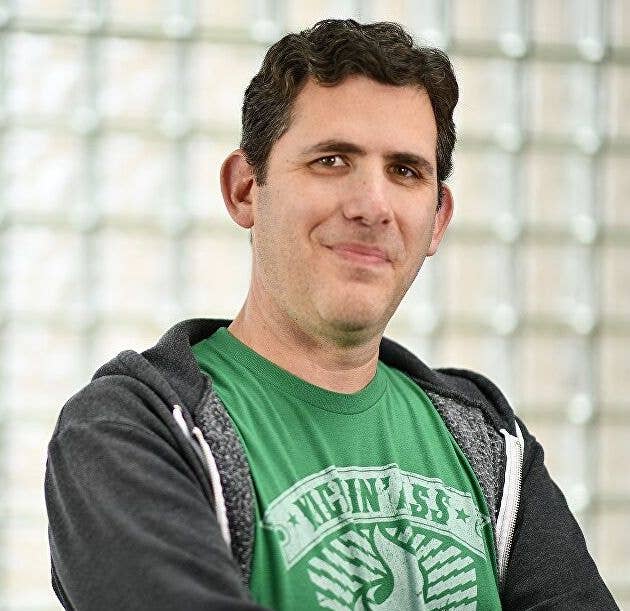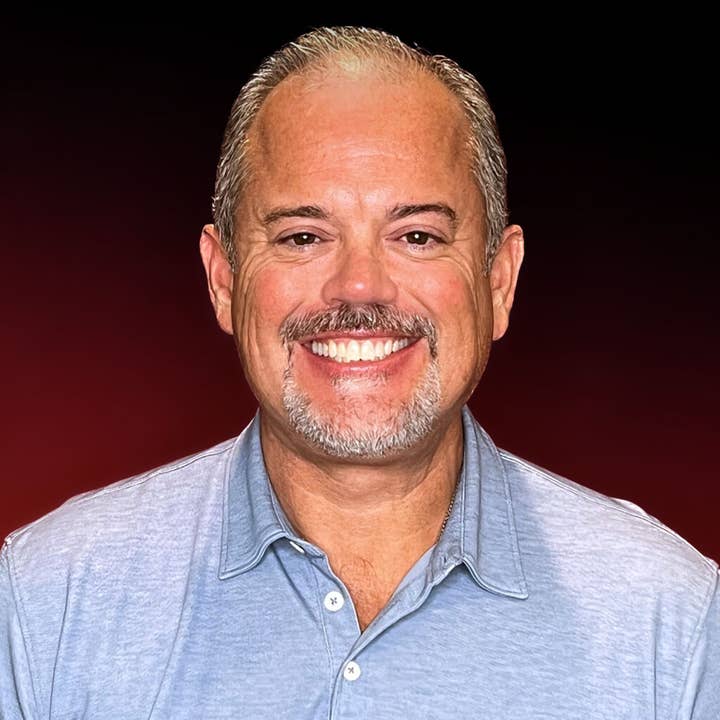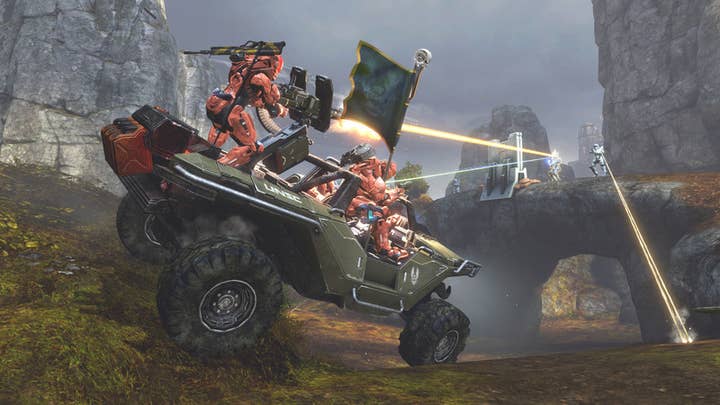Certain Affinity on reaching "AAA quality on a AA scope"
CEO Max Hoberman and newly appointed COO Paul Sams about taking their lessons as a support studio into lead development
Is there space for an independent studio to create a big-budget title that can fight for its place in a market increasingly dominated by ever-consolidating global publishers? When even mega-publishers like Activision Blizzard are no longer immune to a corporate takeover and budgets continue to spiral, can a studio from outside this sphere of influence even hope to have their voice heard?
This is exactly the proposition that Austin-based games studio Certain Affinity is betting itself on, as the company continues to work towards its goal of self-producing and releasing its own AAA-quality titles.
The studio, founded in 2007 by Max Hoberman, has grown over the years into one of the largest and most experienced outsourcing development teams in North America, with hundreds of developers assisting with work on franchises like Call of Duty and Halo. It was in early 2012, however, that the studio first committed itself to developing its own projects, something that ramped up in earnest in 2019 with the opening of a studio in Toronto as its debut, unannounced project was finally coming together.
"The world has changed around us pretty radically at times, but our ambition remains the same, and our goals remain the same"Max Hoberman
Yet even since that 2019 affirmation of intent, the world has transformed. A global pandemic as the studio ramped up development is something Hoberman was more than happy to admit was far from an ideal situation for the studio to face in such a transition. But as the company reaches the apex on its project, it's further bolstered by the recent hiring of Paul Sams to run the business side of the company, a veteran previously employed at Activision Blizzard and Ready at Dawn.
"It’s been a crazy couple of years, you know," Hoberman says as we tune in over Zoom to discuss the company’s next steps. "Add to your list of crazy stuff that Leyou [Hong Kong-based video game holding company with 20% stake in Certain Affinity] sold itself to Tencent. I think the world has changed around us pretty radically at times, but our ambition remains the same, and our goals remain the same."
Those goals seek to transform the company from one primarily reliant on external support for major projects, typically later in development or where the conceptual decisions have been decided to help them deliver a polished finished product, to creating something from scratch that players will support. Even experience getting dozens of projects of all sizes and for all studios across the finish line doesn’t necessarily prepare you for leading development.
"The really candid answer is that there’s been challenges," he admits. "It is inherently difficult to go from a business where the bulk of what we do is get called in at late stages on projects to help get them out the door or to reach quality goals. Through that we built an expert team that was really good at finishing and shipping things. We’re often there to get developers out of trouble from decisions made early on in the concept and pre-production phase that have consequences, and we’ve built a pretty good business off of that.
"We've seen the downstream consequences for years and years of people not always navigating these early stages as well as they should, and had this theory that since we know all the negatives we should be able to avoid making the same pitfalls. The reality is, it’s way easier said than done."
"[We] had this theory that since we know all the negatives we should be able to avoid making the same pitfalls. The reality is, it's way easier said than done"Max Hoberman
Considering these hurdles and the need to focus on the game’s production, Sams was brought in to avoid the workload of the founder from being overbearing.
"My experience is in coming into a founder-led company, both at Blizzard when I started there, as well as at Ready at Dawn," is how Sams introduces his responsibilities at Certain Affinity.
"In each case the founder, and it was the same with Max, has had great development capacity, but those people were spread way too thin," he continues. "When you’re small and you don’t have the benefit of hiring specialists, it’s inevitable that the founder will try to wear a bunch of different hats because they need to make sure everything is done at a high level, and even with their superpower for games development they put significantly more effort into the business side to keep the wheels on the wagon, so to speak.
"Me coming on board is unlocking the ability to partner with our other key development leadership to hopefully be able to take those big next steps to realize those goals."
Responsibilities include working on expanding remote work access and handling expansion for the studio domestically and in Canada. The hiring of Sams, who had been a strategic advisor for three years, may have helped from a business perspective, overcoming the difficulties of COVID and further political complications have made the job far from simple.

The political realities of an increasingly-extreme American political landscape, the erosion of rights in the US for marginalized groups such as the growing discriminatory rhetoric against LGBTQ+ individuals, and the overturning of Roe vs Wade removing a woman’s right to abortion, affect the ability to attract people domestically and internationally to the studio.
Being based in one of the most conservative states for issues important to the company and their employees, such as laws regarding abortion access, only exacerbates this.
Earlier this year, the company announced a policy to pay for the costs needed for employees to leave Texas to access healthcare like abortion access. This has helped limit the impact of the decision, but the expansion of remote work both before and during the pandemic to allow full remote work access for employees who would prefer to live in most US states is a further policy allowing the studio to retain talent against this backdrop.
"I’m pretty sure that the immigration system in the US over the years has hurt us more than it’s helped"Max Hoberman
As Hoberman explains, "We opened the Canadian studio before the pandemic, and it put us down the path of a distributed workforce, remote work, calling in, virtual hybrid calls, all these things. Then the pandemic hit. Now it’s hybrid, with people in the office, some are remote, and it’s [their] choice. We won’t force anyone to the office who doesn’t want to. But we also now have a number of employees that have gone remote and moved to a different location, sometimes in-state, sometimes out of state, and we’ve hired full-time employees that are already resident in other states.
"I’ve lost count, but we have maybe ten or so different states and Canadian provinces with full-time remote employees and estimate maybe half are people that actually moved from Toronto or Austin to a remote location. I feel we’ve done a good job with that, and when we made the pledge [on Roe vs Wade], we said we’d pay to relocate you and your family to another state or province we operate in and because of that we have about a dozen states and provinces we operate in now.
"This is a growing list, too. We have a backlog of additional ones we’re adding where people can go if they are impacted by that. It’s not as extensive as I want, so one of Paul’s big projects will help facilitate more rapid expansion of this. And who knows, down the road that may mean expansion into additional countries and overseas. We haven’t rolled it out and don’t have any plans right now, but I wouldn’t rule it out."
This still, however, has limits. How realistic is it to expect talent outside of the US to emigrate to the country, even with these concessions, when increased racist attacks and more have made life more difficult, particularly for marginalized groups? All without even discussing the strict immigration requirements that hurt even those wanting to make the move, although Toronto has helped in this instance.

"It’s made a dramatic difference on the ease of bringing in international workers with a studio in Canada," explains Sams. "In the US there are quotas for a max number of slots you can bring in each year for each type of visa which are highly sought after. Sometimes it doesn’t feel like there’s a clear rhyme or reason why one person got a visa and another didn’t, too. Whereas when you look at Canada, there’s a very specific and concise set of rules to bring in international workers and the process is very short in comparison. If you’re lucky to get one of those slots it can take six or 12 months to get someone in if they don’t get in that year, whereas in Canada you can get people in in a matter of weeks."
Hoberman was even more blunt on the issues with immigration, a system that his volunteer work for a refugee resettlement agency in Texas has also seen him become intimately familiar with.
"I’m pretty sure that the immigration system in the US over the years has hurt us more than it’s helped," he says. "We’ve lost more people that were forced to leave than we’ve gained that were allowed in, it’s insanity."
This expansion and consideration for accessing talent has still been conducted with an ultimate goal in mind: their new major original project. It’s a risky proposition for any company to go about funding their own game at a time of spiraling budgets, and it’s hard not to look at the state of the economy and argue the prospect of selling any product in this climate isn’t a difficult prospect. Especially for a project that, as the team stated during our conversation, is aiming for "AAA quality on a AA scope."
"Financially we’re on really solid ground, we had our most profitable year ever last year"Paul Sams
Yet, compared to prior years, this may be the best time for the studio to pursue an ambitious project like this, with Certain Affinity in a healthy financial situation no matter what happens.
"We don’t put all our eggs in one basket because sometimes bad things happen," says Max. "We’ve always had between two to four teams and projects going at once, but it also meant that there was no way for us to take one of our teams and say we were going to work on lead development when we didn’t have a proven track record. Now we can self fund a prototype, and to be frank, financially we’re on really solid ground, we had our most profitable year ever last year. We have the ability to iterate and not be afraid that if we fail, it’s not an existential threat that’s gonna put us out of business."
Certain Affinity wants to do things differently. Promoting a diverse and multi-national workforce that de-emphasises crunch as much as possible (even when this may not be matched by the studios they are supporting) is something the studio wishes to keep prioritizing as it furthers its journey into lead development.

Then again, maybe taking an alternative approach to the norms is the path necessary to ensure big-budget development can even exist outside of the major conglomerates. Ninja Theory showcased this alternative take on the norms of project development with the open process the team documented during its work on Hellblade before its purchase by Microsoft. There is another path, and it’s one that Certain Affinity are hoping to transform the company with.
"A lot of companies do seem reluctant to really go big and spend big dollars with an external partner when they could go internal, so we’re trying to navigate that," states Hoberman as we approach the end of our time. "There’s a huge AA market, including in our spaces like the shooter space, multiplayer games, action games, things like that. We’re trying to figure out if something with AAA production values in that space will end up resonating with people looking to work with external partners, finding that sweet spot. As I focus more on development, that’s the type of stuff I’m thinking about, seeing if there’s an interesting niche for us in that AA market while providing AAA quality.
"And hopefully, we'll be successful. And I'm confident eventually, we will absolutely be successful in this transformation to being a company that creates original games, some of the best original games on the planet."
Sign up for the GI Daily here to get the biggest news straight to your inbox









